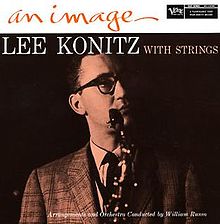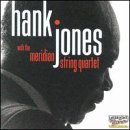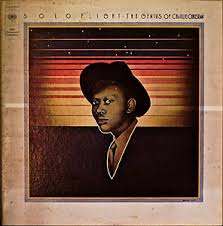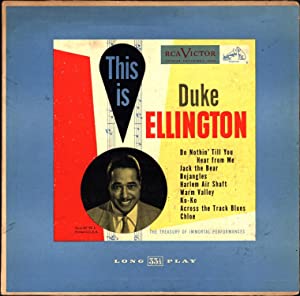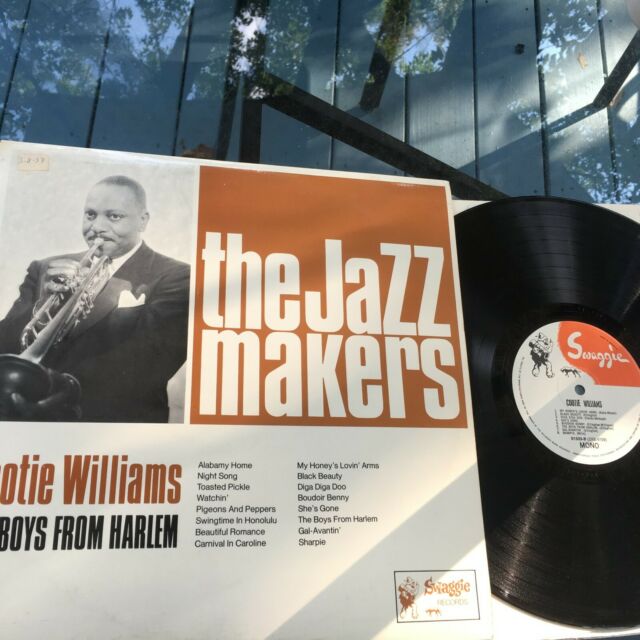-
Posts
13,205 -
Joined
-
Last visited
-
Donations
0.00 USD
Content Type
Profiles
Forums
Events
Blogs
Everything posted by Larry Kart
-
I've read and love all the Stark novels but have never been able to get into the semi-comic crime novels that Westlake published under his own name, like "The Hot Rock," expertly done though they are. For me, comedy and crime are more or less antithetical.
-
The Mick Herron Slough House series of which "Dead Lions" is a part is top notch. In the later novels of the series there is a nefarious character who seems to be based on Boris Johnson. I eagerly await the next Slough House book. The fiendishly scheming head of MI5 Diana Taverner (known as Lady Di, but don't say it to her face) is a great character, as is her frequent antagonist and head of Slough House Jackson Lamb.
-
Briefly, I have no problem with PW's virtuosity per se; what I don't like is what strikes me as the slathered on hotness that came to be a hallmark of his playing and, further, though it's probably not separable from that, his tendency to pepper, so to speak, his lines with a great deal of accenting, when in what I think of PW's pre-'57 work, his lines were by and large allowed to breathe, to be lines, if "allowed to be" is the way to put it. And he was such a fine maker and shaper of lines, and/or, which may be more to the point and a rarer trait, someone who could create a fluid dialogue of shapes -- a la, if this isn't too farfetched, one of his early models, Benny Carter. The subsequent proliferation of hardbitten gritty accents in PW's playing more or less left PW the lucid and at times quite graceful shapemaker in the rearview mirror. Some top notch vintage Woods for me would be his playing on George Walington's "Jazz for the Carriage Trade" and on Quincy Jones' "This is How I Feel About Jazz" (hear his solos on "A Sleeping' Bee" and "Walkin'"). Speaking again of PW's hotness, I never found it off putting when he was teamed up with Quill because Gene may have been even hotter, especially in terms of temperament, and the sense that they were jousting with each other typically seemed so natural and inevitable -- like Griff and Jaws. But when the hotness begins to feel like it's coming out of a bottle... Yes, many others in what I sometimes think of the jazz clubhouse or locker room feel otherwise. And I don't hate PW; to me he's a player who had a great gift and for reasons that I can only guess at went off in an another direction that rendered the gifts that he IMO once had in abundance pretty much a thing of the past. That he had other gifts that made him a man leaders wanted in their sax sections goes without saying, but those gifts are shared by others. The gifts I detect in the pre-'57 or so Woods were exclusive to him.
-
One of the dividing iline recordings for me was "Life at the Half Note" (from 1959, I think) with Al and Zoot and Phil added on half the tracks. Encountering it at that time and with so much lucid shapely Woods solo work in my memory bank, the seemingly artificial "hotness" of his playing here was quite a shock compared to the previous Woods recording of the prior persuasion that I recall, Red Garland's "Sugan." As for the "circus back in town" remark, some context. At some point in the '80s, Phil's group came to Rick's Cafe American in Chicago. I was prepared from prior encounters for what I was sure was to come, but instead the first set was quite mellow, really lovely relaxed music-making. Afterwards Phil apologized to the audience, said that because of transportation snafus they'd arrived in town having had very little sleep, and he promised they'd get things together for the second set. I stuck around, and yes "the bebop circus" (or something of the sort) "was back in town."
-
Believe it or not, Dan, I just ordered a copy. Phil surely has many good tales to tell, I liked the writing style in the sample I read, and I'm curious to see if there might be some incidental revealing information about what might have led to the circa 1958 change in Phil's playing that I believe took place and I've seldom been able to get past. I'm curious too about what he has to say about his life with Chan, if indeed he choses to talk about that.
-

Whither Moms Mobley? With an "O"?
Larry Kart replied to Teasing the Korean's topic in Forums Discussion
I was the one who thought he was "GIo." I was dead wrong, but the tone of voice was similar. -
I am 78.
-
Am listening to the same set sgcim mentioned 'The Complete Studio Recordings of the Chico Hamilton Quintet featuring Dolphy and Dennis Budimir', Leaving aside the matter of who Dolphy surpasses here, I would say that he's just Dolphy already taking flight to a remarkable degree in 1958-9. As for how mainstream he was back then -- yes, he ticks a lot of mainstream-language boxes at times, but that IMO only serves to catapult him, like a man bouncing on a trampoline, into ... well, I wouldn't say outer space but into places where no one else had gone before him. And my sense is that it is those places where he wanted and needed to go. In particular, I think that the remaining presence of the inside strain in these performances essentially served to fuel the strength and add to the distance of Dolphy's more or less eruptive leaps away from it. In any case, those leaps here are, as sgcim says, astounding and full of joy, too.
-

happy Birthday JSngry
Larry Kart replied to White Lightning's topic in Miscellaneous - Non-Political
Happy Birthday! -
A favorite of mine, and not only for Lee, who's in great form; composer/arranger Bill Russo more than holds up his end. In fact it's something of a blessing to hear Russo's heady ideas in a string quartet setting, apart from the Kenton brassworks. Manny Albam arrangements on this choice Hank Jones disc ("Hank Jones with the Meridan String Quartet").
-

Confirmation on Teddy Wilson and Mosaic update
Larry Kart replied to ghost of miles's topic in Mosaic and other box sets...
When I wrote the above, I was only up to mid-1936, and I heard lots of evolution in Wilson's approach, as the brilliant Hinesisms get a bit ironed out perhaps, but in return, so to speak, one gets a spilling out of jewels of a somewhat different sort -- less brittle and aggressive that Wilson's Hines-colored mode but almost Tatumesque in their harmonic sophistication. And the melodies! Yes, the Mosaic has the alternates. Otoh, given what you already have of Wilson of that period. you may not need this set. -

Confirmation on Teddy Wilson and Mosaic update
Larry Kart replied to ghost of miles's topic in Mosaic and other box sets...
My copy of the set arrived today. Listened to Disc 1; it's fabulous, just fabulous, and very enlightening too in ways that I may not have the words for. One knows, or thinks one knows (at least I do or did) what Wilson's style snd musical virtues are, but this set makes it clear how ... for want of a better term ... granular the evolution to or toward the latter-day Wilson was from the already brilliant but very Hinesian Wilson of the May 23, 1934 solo recordings on through the recordings that follow -- and I'm only up June 30, 1936. There are worlds within worlds here, very detailed worlds too. Forget about the latter-day suave, sophisticated Wilson is something I'd never say, but the urgently evolving Wilson of the 1930s is a rather different cat who has to be heard. -

Herbie Mann (and other jazz flute) recs, anyone?
Larry Kart replied to Nutty's topic in Recommendations
Not being a flutist I can't say for sure, but I think that in some way and to some degree -- and I'm going by the Xanadu recordings, which are different from and IMO superior to his Bethlehem recordings --Sam did semi-whistle as well as well as play the instrument in the normal manner. For a while this bothered/flustered me a bit, but then I decided that the degree of articulation he achieved and the ideas he was then able to realize made that semi-whistling approach worthwhile. -

Bob Dylan sells entire song catalog to Universal Media Group
Larry Kart replied to sonnymax's topic in Miscellaneous Music
Circa 1961 I was in a dorm room at the U. of Chicago with a visiting Bob Dylan, then still Bob Zimmerman, and some of that school's talented folkies (the U. of C. was a folk music hot bed at the time). It was my impression that Dylan was not the most accomplished player in the room by a good margin, but when he more or less took charge of things, the music-making came together as it hadn't before. -

Herbie Mann (and other jazz flute) recs, anyone?
Larry Kart replied to Nutty's topic in Recommendations
I agree on Strozier and Jaspar. Any thoughts about Sam Most? I like the way he played on his Xanadu albums. -
But with the turntable on the bottom of the stack there wouldn't be room for the turntable's plastic dust cover to open.
-
Kind of but less dark (Mitchell could get pretty grim and haunted at times), more folksy humorous, not unlike a more genial Ring Lardner. Mencken, a great admirer of Ade, said of him: "Here are brilliant flashlight pictures of the American people, and American ways of thinking, and the whole American Kultur.... Ade himself is as absolutely American as any of his prairie-town traders and pushers, Shylocks and Dogberries, beaux and bellles."
-
Something I sent the other day to a friend about Ade: Been reading “Chicago Stories” by George Ade (1866-1944). Written in the 1890s for a predecessor of the Chicago Daily News, they earned Ade quite a reputation as a humorist, and I can see that; but these “pen portraits” ( to use an old term that fits) of the denizens and neighborhoods and manifold colorful and often eccentric details of Chicago’s then past (e.g. the remains of the canal system that once was vital to transportation of goods/material to Chicago, since almost wholly superseded by the railroad, and all the now mostly tumbledown buildings (taverns, hotels, etc. that were associated with it), alongside the city’s turbulent then present (new construction rapidly afoot). Ade’s sense of observation is very acute, and his sense of affectionate empathy is broad, extending to every “disadvantaged” group one might think of — including immigrant Jews and their junk shops, Italian street peddlers, and perhaps rather surprisingly, given that Ade was a native of southern Indiana, the city’s burgeoning black population. See, for one, the piece "A Plantation Dinner at Aunt Mary's," Aunt Mary being the city's finest purveyor of "chidlins." Ade was a very supportive Purdue graduate, and the school's Ross-Ade Stadium is named in part for him.
-
sgcim -- I'll listen to the recording of the Shapero Quartet I have and see if I can detect that passage. Interesting composer -- I have a CD of his piano music that I like a lot -- but his contribution to the Brandeis concert, "On Green Mountain," is rather corny chi-chi IIRC. Ssd story about Shapero's Piano Sonata in F Minor. "Premiered by Beveridge Webster in New York in 1948, it wasn't played in public again until 2013. The reason for the long delay ... at the premiere this rather gentle work was booed and hissed, with the taunt 'Hurrah for Beethoven!' uttered by the young serialist composer George Perle. This rudeness ... was enough for Shapero to lapse into creative silence for many years." The Sonata certainly was modeled along classical lines. Aaron Copland said that "Styistically, Shapero seems to feel a compulsion to fashion his music after some great model." Copland then mentions three Shapero works -- one modeled on Stravinsky, one on Haydn, and one on Beethoven. Interesting that the then dogmatic Perle, while remaining a serialist in some respects -- he was the author of authoritative books on Berg's "Wozzeck" and "Lulu" --eventually made a fairly successful attempt in his own music to reconcile serialism and tonality.
-
I've got a recording of the Shapero String Quartet by the Lydian Quartet on New World. If possible, can you tell me where in the work that passage can be found? Thanks.
-
Kipling's'"Puck of Pook's Hill" George Ade's "Chicago Stories" Just by chance, Kipling and Ade were contemporaneous, the former 1865-1936, the latter 1866-1944. Not that well known anymore, Ade is quite something.
-
On Scottish trumpeter Jimmy Deuchar's excellent 1957 album "Pub Crawling" (recorded in Great Britain and released over here on Contemporary), every track is named after a different British beer or ale -- "IPA Special," "Colne Springs," "E," "Treble Gold," "Bass House," and "Final Selection."
-

Dodo Marmarosa
Larry Kart replied to JamesAHarrod's topic in Jazz In Print - Periodicals, Books, Newspapers, etc...
Does anyone else know the obscure album "Jazz Up Your Life" that Dodo made in '62 in Chicago, backing talented singer Johnny Janis, with Ira Sullivan, bassist Jerry Friedman, and drummer Guy Viveros? Unreleased for years until Janis put it out on CD on his own Starwell label, it finds Dodo in fine form -- what an accompanist he was. I got my copy from Janis himself about ten years ago, but he died in 2017 at age 89, so I'm afraid that option is gone. If you have a taste for Sinatra-quality balladering, Janis' album with Don Costa, "Once in a Blue Moon," is still available on Amazon. Hugh Hefner was a Janis fan and bankrolled the album. Before that Janis made a nice album for RCA-Victor with onetime Max Roach pianist Biily Wallace. Janis was akin in style to the late Frank D'Rone, if that rings any bells, and like D'Rone he also was a talented jazz guitarist.- 7 replies
-
- dodo marmarosa
- charlie barnet
-
(and 2 more)
Tagged with:
-

looking for: 30's jazz recommendations
Larry Kart replied to chewy-chew-chew-bean-benitez's topic in Recommendations
_forumlogo.png.a607ef20a6e0c299ab2aa6443aa1f32e.png)

